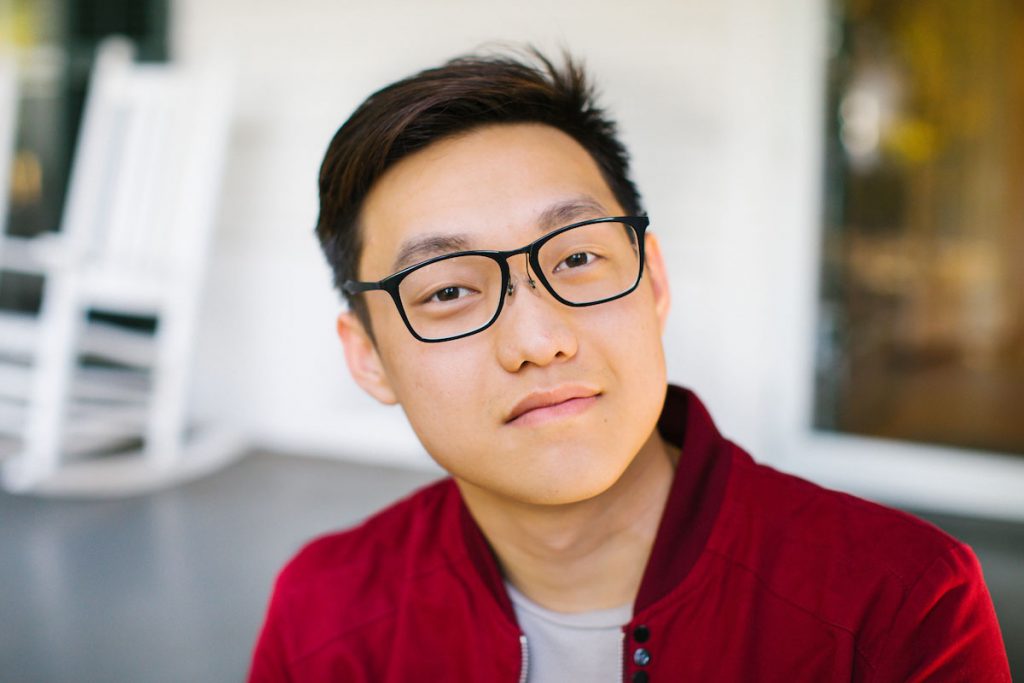
Have you ever sat down with the older generation in your community to ask questions about their lives? For Carolina junior Emmanuel Lee, an internship with the Southern Oral History program (SOHP) provided just that opportunity and challenge.
In summer 2018, Emmanuel served as the first intern for Southern Mix, a collaboration between SOHP, the Carolina Asia Center and the Alumni Committee for Racial and Ethnic Diversity (ACRED). Southern Mix is building a collection of oral histories to honor the distinctive and powerful stories of Asians and Asian Americans in the American South. Emmanuel wasn’t fulfilling a long-harbored desire to conduct oral history interviews. He had changed his major two times and, after landing on sociology, was looking for something to give him experience that related to his interests. On the recommendation of a co-worker, he applied to SOHP at the last minute — and was accepted. His experiences with the Southern Mix project helped him learn more about his own family history and reinforced his desire to pursue research into the Asian-American experience.
He returned to his hometown of Hickory, North Carolina, for the summer and set to work recruiting narrators. By connecting through family and friends, he spoke with seven Asian and Asian-American adults, including his mom, all of whom are Filipino or Hmong. Conversations centered on themes common to both Southern Mix and the Asian and Asian American experience in America — “refuge, escape, culture, assimilation, immigration and others,” according to Emmanuel.
In his first interview for the project — his first oral history interview ever — his narrator talked about how she cried while taking the citizenship oath, “I paused the recording and asked, ‘If you don’t want to talk about it, it’s okay.’ But she assured me she did not mind. She said she was overwhelmed by the memory of becoming an American citizen and the feeling of giving up part of her Filipino identity, but made the choice because it was the best one for her future, her spouse’s future, and her children’s future.” That story, and his interviewee’s willingness to share, has stuck with Emmanuel.
For Emmanuel, speaking with his mom was “very touching.” Her stories included fleeing the Secret War in Laos, moving to America without speaking English and a desire to go to school that was never fulfilled. The interviews over the summer affirmed his research interest in gender roles and in sexuality — particularly how those topics are approached in the Asian and Asian American community. “I never sat down and asked my mom how she feels about gender equality, but I did that week. It was really nice to break that mental and social wall and to have the possible future to talk about it later.”
Emmanuel took a lot from his summer with Southern Mix about representation and storytelling and will carry it with him, whether that is to a study abroad program in Asia or his career after Carolina. “There is a lack of visibility of Asian and Asian Americans within the sociology world. Our stories are not told as much, so it was a privilege to be able to hear those stories. At the same time, even though I related to those stories or have had similar experiences, this research is important because it assisted in the direction of de-homogenizing the Asian-American experience… It helps inform people that there is diversity within the Asian and Asian American communities.”

